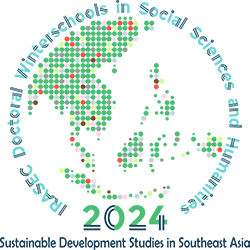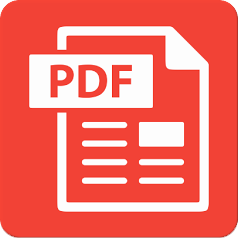Sustainable Development Studies in Southeast Asia (SUDSSEA)
IRASEC Doctoral Workshops in Social Sciences and Humanities
 Bangkok & Manila, 25 November - 7 December 2024
Bangkok & Manila, 25 November - 7 December 2024 
Objective
The Research Institute of Contemporary Southeast Asia (IRASEC) organises annually a doctoral winter school, in collaboration with a range of European and Southeast Asian universities and research centres.
IRASEC’s winter schools intend to endorse comparative and regional research methodologies, facilitate the interaction of students, and promote co-tutorship and co-supervision of dissertations for early-career researchers in Southeast Asia. Coming from different national backgrounds, the students get to know other academic cultures, while exploring the local specificities of a common theme.
In 2024, the IRASEC Winter school will be dedicated to Sustainable Development Studies in Southeast Asia, and will be co-organised and co-hosted by the Faculty of Sociology and Anthropology, Thammasat University and the Center for Integrative Development Studies, University of the Philippines in Diliman.
To whom and by who
SUDSSEA is designed for early career researchers—particularly master’s and PhD students, but also people willing to become practitioners—who are interested in exploring the dynamics of sustainable development in Southeast Asia and beyond, through a social sciences lens. The trainers come from a variety of backgrounds : authoritative scholars, skilled practitioners, impactful NGOs, local communities, public decision-makers, private sector.
Why Southeast Asia, Bangkok and Manila
In the last decades, Southeast Asia has undergone development transformations which were fast and massive, impacting the sustainability of societies and environments. Since the 1960s, the spectacular economic and demographic growth has led to considerable upheavals in the organisation of human communities. This phenomenon is marked by inequality of growth within and among countries, urban expansion and the construction of major connectivity infrastructures, pressure on natural resources and its social impact, as well as the challenge to assure food security in altered environments.
To address these questions, Bangkok, Manila and their surroundings are of comparative interest because of their contrasting development experiences, the diversity of their populations, the intensity of the flows with surrounding semi-urban and rural areas, and the variety of environmental challenges they face. Researchers and practitioners from various fields and disciplines of SSH will shed light from different angles on the challenges posed by the unequal and short-term nature of growth, and will explore more sustainable development initiatives. The school will address questions such as : the paradigm of “green” and inclusive growth ; diverse territorial organisation of human activities ; relationship between human beings and their environment ; the impact of development on inequalities ; exposure to risks ; environmental degradation, public policy and political ecology ; and resilience and strategies of local populations in the face of environmental challenges.
These questions will be studied thanks to cases all across Southeast Asia, through a comparative perspective.
A number of key questions will be addressed, including :
- Inequality and growth : regionally, income inequalities remain high and generally increase. Moreover, Asia’s economic and demographic growth has disrupted “traditional” social organisation. In this context, what is the relevance of growth as an indicator of development ?
- Urban expansion and persistence of rural landscapes : the size of cities in Asia has reached unprecedented proportions, often rendering living conditions difficult. The impact both coastal and rural areas. How do the public and the authorities react to these pressures ?
- Pressure on natural resources and its social impact : energy transition and decarbonisation plans are based on the extraction of new critical raw materials. More generally, developed countries link their strategies for reducing environmental impact on the land, the water and the air to the outsourcing of their pollution. How are these new impacts being publicised and mitigated ?
- Socio-environmental tension : is it possible to preserve ecosystems—and not just for a few emblematic species or places—without penalising local populations ? How scales complexify this question, when local livelihoods do not match with transboundary sustainability of resources (e.g. oceans and air) ?
SUDSSEA activities
The Winter school will be organized around a series of activities designed to help the students engage with development studies from various thematic and disciplinary perspectives and better locate their theme and research objects within the field.
- Lectures will examine the main theoretical and methodological orientations of development studies, from a multidisciplinary and multi-sectoral perspective.
- Methodological strategies, ethical questions (from the planning of research to effective outputs), and limitations will be highlighted by trainers sharing their experience.
- In workshops, the students will critically analyse a corpus of development related scientific papers, reassess and re-think their research objects through the prism of development studies, and (re)write their research proposal in the perspective of applying for grants and/or doctoral schools.
- Small groups of students supervised by the trainers will carry out fieldwork activities (observation, interviews : ± 40% of the training time), according to themes developed in accordance with their profiles. These fieldworks will take place in various milieux in Bangkok, Manila and their surroundings. They will provide an opportunity to discover realities that are little known to students and to grasp methodological issues of gradual complexity.
Where and when
The SUDSSEA edition of IRASEC Winter School in Social Sciences and Humanities will be held at Thammasat University in Bangkok (25-30 November) and at the Uni-versity of the Philippines in Diliman, Quezon City, Metro Manila (1-7 December). The event will involve Southeast Asian and French teams of researchers, lecturers, practitioners and institutional actors. The Winter school takes place onsite only, and students must take part in the two-week training course in its entirety.
VENUE :
Thailand : Faculty of Sociology and Anthropology Thammasat University, Tha Prachan, 2 Prachan Road Phra Nakhon, Bangkok 10200.
Philippines : UP Center for Integrative and Development Studies, Bahay ng Alumni, Lower Ground Floor, Magsaysay Avenue, UP Campus, Diliman, Quezon City.
How to apply
Three categories of candidates are eligible :
- PhD students (1st/2nd year)
- Students who hold a master degree and are considering enrolling in a PhD program in France or in another country
- Master students planning to enroll as PhD students (in France or in another country) after completion of their master.
The application file shall be composed by :
- cover letter outlining the student’s motivations to attend the SUDSSEA Winter School ;
- updated curriculum vitae ;
- research project (between 700 and 1000 words) that the applicant develops / may want to develop during his/her doctoral studies ;
- copy of master degree or academic transcript (in case the applicant does not yet hold his.her master degree at the time of the application).
- In case you wish to apply for a fellowship : a written statement (email will be acceptable) explaining what type of assistance (tuition fees, travel, accommodation, both) and why, and certifying that you are not receiving any other form of funding to attend SUDSSEA winter school.
The application shall be sent to the following email address : winterschool2024 irasec.com.
⚠ Candidates must submit their application at the latest on September 1st 2024. Successful applicants will be notified on September 15th 2024.
Fees and Fellowships (Travel & Accommodation)
All successful applicants will have to pay a registration fee equivalent to 100 Euros.
Limited funding is available to sponsor tuition fees international travel (inside Southeast Asia only) and/or accommodation (twin beds room in hotel or apartments) costs for students coming from low-income countries.
Funding will not cover insurance cost, visa fees (if any), food expenses, local transport.
If you have any questions
Do not hesitate to reach out to the IRASEC coordinators—Gabriel Facal and Jérôme Samuel—if you have any questions : winterschool2024 irasec.com.
Lecturers & members of the scientific committee
Gabriel Facal, Ph.D., Deputy Director, anthropology, Bangkok
Amporn Marddent, Ph.D., Assistant Professor, Thammasat University, Thailand
Maria Simeona M. Martinez, Assistant Professor, geography, University of the Philippines Diliman, Philippines
Panarai Ostapirat, Assistant Professor, Thammasat University, Thailand
Prasert Rangkla, Ph.D., Assistant Professor, Thammasat University, Thailand
Penchom Saetang, Founding Executive Director, Ecological Alert and Recovery–Thailand (EARTH)
Dr. Jérôme Samuel, Professor, IRASEC Director, Bangkok
Siriporn Srisinurai, Ph.D., Deputy dean of graduate studies, Thammasat University, Thailand
Jose Monfred Sy, Assistant Professor, Philippine studies, University of the Philippines Diliman, Philippines
Eduardo Tadem, Ph.D., Professor emeritus, University of the Philippines Diliman, Philippines
Anusorn Unno, Ph.D., Professor, Thammasat University, Thailand
Boonlert Visetpricha, Ph.D., Associate Professor, Thammasat University, Thailand











